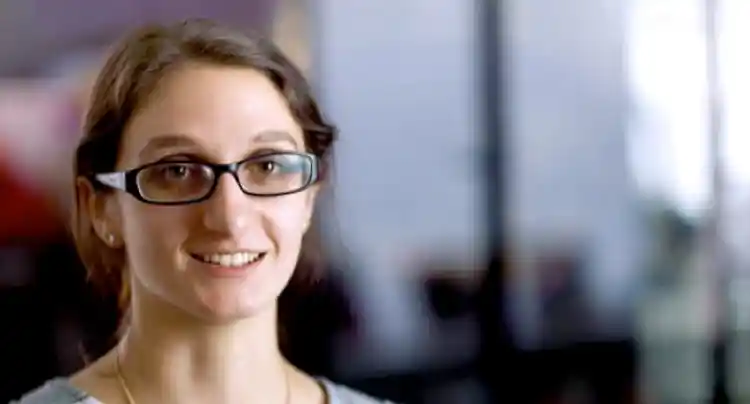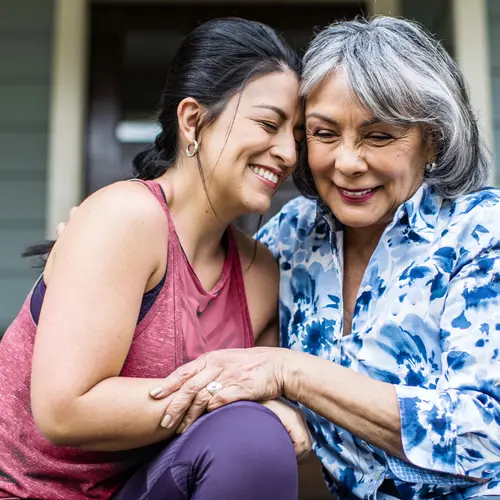Too Young for MS

Hide Video Transcript
Video Transcript
[MUSIC PLAYING]
SAMMI RESCIGNO
Up until I was 19 years old, I was a competitive dancer. I was dancing up to six days a week for a couple of hours a day. So it was a huge part of my life. I liked being on stage. I was definitely a performer. I was a junior in college, and I was planning on studying abroad in London. I was very excited for the trip. And a couple of days before I was supposed to leave, I was shopping with my mom, and I started losing vision in my eye. So they sent me to the hospital, and they diagnosed it as optic neuritis, which they weren't really sure why I had it. And then a couple of days in the hospital, after a couple of tests, they decided that it was multiple sclerosis. It was my first MRI, my first CAT scan, my first spinal tap. And it was very scary, because it never happened to me before and I wasn't sure what was causing it or why it was happening. My mom was with me in the hospital the whole time, so she was going through everything with me. She was a lot more knowledgeable, especially when I didn't really know what was going on. She was the one talking to the doctors and nurses, so she was always there. One of the symptoms that I struggle with most is fatigue. So I am student teaching right now. I'm a full-time student, I'm a full-time teacher. So I go to the high school in the morning. I leave the house around 7:00. So I'm there from 7:30 to 2:30, and by the time I came home, or went to class and then came home, I was exhausted. For a normal person, I think it's a pretty tough schedule, but especially for me with the fatigue. Mentally, physically, I was just drained by the end of the day. I always wanted to be a teacher, so when I was going to school for my undergrad, I was a history major and I was minoring in education. And I knew that I wanted to do a full-year program for my student teaching. I was chosen to do the full-year program for my fifth year, after my grad school. And I'm completing it now, and it's definitely been a struggle, but I think it's been worth it for my future plans. Since I was diagnosed, I haven't danced as much, partly because I don't compete anymore. So sometimes I notice when I'm doing some of the steps with my students, it's a little bit more difficult for me than it was in the past. Sometimes my muscles are weaker or because it's been a long day, I've been very tired, then I can't move as well as I used to. Teaching has been a way that I could keep dance in my life without it being as extreme as it used to be. So I'm able to share it with my students. And they're annoying sometimes, they're like seven years old, but they're fun. I think that it could be easy to be angry with a diagnosis like this, especially when you're so young. But I see it as a challenge. I knew all the things that I wanted to do and how I was going to do them, and having this extra challenge has only pushed me to be even stronger. As a young person diagnosed with MS, my advice would be to just take it one day at a time. I think it's scary to think about the future, and jumping 20 or 40 years ahead is a terrifying thing to think about, but this is a disease that's unpredictable. So you really need to just take it one day at a time and focus on living your life in the present, not worrying about what the future is going to be like. I can still be who I am. MS won't stop me. [MUSIC PLAYING] 